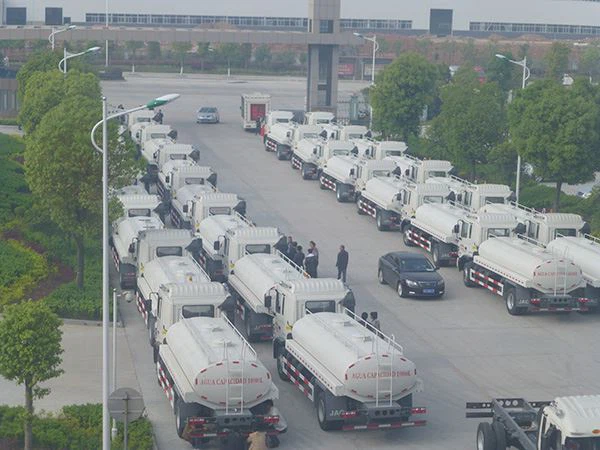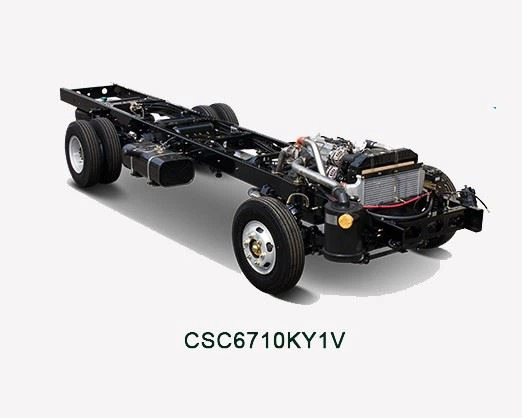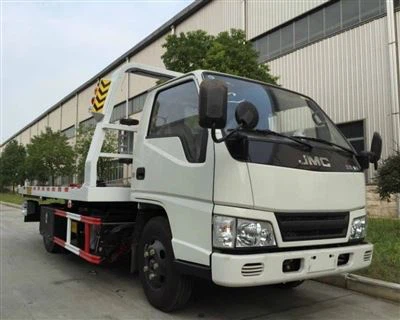Everything You Need to Know About Small Dump Trucks

Introduction
Small dump trucks are versatile vehicles used in various industries for transporting material over short distances. They are particularly popular in construction, landscaping, and municipal projects. Their compact size allows for easy maneuverability in tight spaces, making them ideal for urban environments and small job sites. This article delves deep into the different aspects of small dump trucks, including their types, features, uses, maintenance tips, and purchasing advice.
Types of Small Dump Trucks
1. Standard Small Dump Trucks
Standard small dump trucks are equipped with a standard dump bed that can be raised to unload materials. They are most commonly used for construction and landscaping purposes. The payload capacity typically ranges from 5,000 to 12,000 pounds.
2. Mini Dump Trucks
Mini dump trucks are smaller in size compared to standard small dump trucks and can fit into tighter spaces. These vehicles usually have a payload capacity of around 3,000 to 5,000 pounds, making them ideal for residential projects and small landscaping jobs.
3. Transfer Dump Trucks
Transfer dump trucks consist of a standard dump truck with an attached trailer that can carry additional loads. This type of truck is useful for jobs requiring the transport of multiple materials without having to make multiple trips.
4. Flatbed Trucks with Dump Capability
Some flatbed trucks come with a dump bed feature. This provides the versatility of both styles, allowing users to transport larger items while still having a dumping capability.
Key Features of Small Dump Trucks
1. Load Capacity
One of the most crucial aspects to consider when choosing a small dump truck is its load capacity. Most small dump trucks can carry between 3,000 to 12,000 pounds, depending on the type. Always check the manufacturer’s specifications to ensure that the dump truck meets your load requirements.
2. Engine Performance
The engine size and power determine how well the truck performs, especially when driving on hills or rough terrain. Most small dump trucks come with a four-cylinder or six-cylinder option. Opting for a truck with higher horsepower can make a significant difference, particularly in challenging conditions.
3. Dump Bed Design
Small dump trucks come with various dump bed designs. The common configurations include standard dump, side dump, and rear dump. The design impacts how efficiently the material can be unloaded and may influence the type of job you can accomplish.
4. Maneuverability
Because small dump trucks are designed for tight spaces, they typically have a shorter wheelbase and a narrower frame. This enhances their maneuverability, allowing them to navigate through urban settings or constricted job sites easily.
Common Uses of Small Dump Trucks
1. Construction Sites
Small dump trucks are frequently used in construction for transporting gravel, sand, and other materials to and from job sites. Their maneuverability and load capacity make them an effective choice for contractors.
2. Landscaping
Landscapers often use small dump trucks to move soil, mulch, and other landscaping materials. The ability to deliver material quickly can help in maintaining a project’s timeline and efficiency.
3. Municipal Services
Many municipalities use small dump trucks for various services, such as snow removal and debris collection. Their size allows them to operate efficiently in residential areas while still being powerful enough to handle heavy loads.
Purchasing Tips for Small Dump Trucks
1. Determine Your Needs
Before purchasing a small dump truck, assess the types of materials you will transport and the typical loads you’ll encounter. This information will aid in selecting the right vehicle with the appropriate capacity.
2. New vs. Used
Decide whether to buy a new or used truck. New trucks come with warranties and the latest technology, while used trucks may offer cost savings. Ensure to inspect the vehicle’s condition thoroughly if you choose a used option.
3. Financial Considerations
Consider your budget and the total cost of ownership, including insurance, maintenance, and fuel costs. It’s essential to calculate not just the purchase price but also the truck’s operational expenses.
4. Brand Reputation
Research different brands and models by reading reviews and asking other users for recommendations. Consider working with reputable dealers specializing in small dump trucks to ensure quality service and support.
5. Financing Options
Many dealers offer financing options. Check what financing plans are available, and try to get pre-approved for a loan before you start shopping.
Maintenance Tips for Small Dump Trucks
1. Regular Inspections
Perform regular inspections of the dump truck’s mechanical components, brakes, tires, and dump beds. Consistent monitoring can catch issues before they become costly repairs.
2. Engine Maintenance
Follow the manufacturer’s recommendations for oil changes and regular servicing. Keeping the engine well-maintained is crucial for performance and longevity.

3. Clean the Dump Bed
After each job, clean the dump bed to remove any debris or materials left behind. This helps prevent rust and preserves the truck’s overall condition.
4. Tire Care
Regularly monitor tire pressure and tread wear. Proper tire care enhances safety and fuel efficiency.
Environmental Considerations
1. Fuel Efficiency
Small dump trucks generally offer better fuel efficiency compared to larger models. Choosing a fuel-efficient model can lead to savings on fuel costs and a smaller carbon footprint.
2. Emission Standards
When purchasing a small dump truck, consider models that comply with current emissions standards. This not only helps the environment but may also be a requirement for municipal contracts.
3. Alternative Fuel Options
Some manufacturers are now offering small dump trucks that use alternative fuels, such as electric or hybrid engines. These options can provide significant ecological benefits.
Safety Tips for Operating Small Dump Trucks
1. Training and Certification
Ensure that all operators are properly trained and certified to operate small dump trucks. This reduces the risk of accidents and enhances workplace safety.
2. Load Distribution
Properly distribute loads in the dump bed to avoid tipping and ensure stability during transportation. Always adhere to weight limits.
3. Visibility
Make sure to maintain clear visibility while driving. Adjust mirrors and consider using cameras or sensors to help monitor blind spots.
4. Use of Personal Protective Equipment (PPE)
Operators and workers in the vicinity should wear appropriate PPE, including hard hats, gloves, and safety boots. Implementing PPE helps prevent injuries in the event of an accident.
FAQs about Small Dump Trucks
1. What is the average cost of a small dump truck?
The price of small dump trucks can range anywhere from $20,000 to $70,000, depending on the model, features, and whether it’s new or used.
2. How much can a small dump truck carry?
Most small dump trucks can carry loads between 3,000 to 12,000 pounds. It’s crucial to check the specifications before loading.

3. What fuel economy can I expect from a small dump truck?
On average, small dump trucks can achieve between 10 to 20 miles per gallon, depending on the weight of the load and driving conditions.

4. Can I use a small dump truck for personal landscaping projects?
Yes, small dump trucks are excellent for personal landscaping projects, allowing you to transport soil, mulch, and plants efficiently.
5. How often should I maintain my small dump truck?
Regular maintenance is crucial; generally, perform an inspection every 1,000 miles or monthly, whichever comes first. Follow the manufacturer’s guidelines for specific maintenance intervals.
6. Are small dump trucks suitable for winter driving?
Yes, many small dump trucks are designed for winter driving. However, ensure they are equipped properly with winter tires and are suitable for icy conditions.
